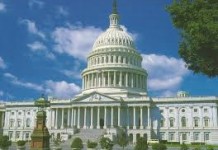Americans start the new year with a variety of national concerns on their minds.
Although none is dominant, the government, at 21%, leads the list of what Americans consider the most important problem facing the country.
Gallup reports that “the economy closely follows at 18%, and then unemployment/jobs and healthcare, each at 16%. No other issue is mentioned by as much as 10% of the public; however, the federal budget deficit or debt comes close, at 8%.
“Americans’ current telling of the top problems facing the country comes from a Jan. 5-8 Gallup poll. The rank order is similar to what Gallup found in December, although the percentage mentioning unemployment has risen four percentage points to 16%.
“Mentions of the government as the top problem remain higher than they were prior to the partial government shutdown in October. During the shutdown, the percentage naming the government as the top problem doubled to 33% from 16% in September.
“Compared with a year ago, mentions of government are up slightly. Mentions of healthcare, on the other hand, have quadrupled — from 4% in January 2013 to 16% today, likely related to highly visible problems with the rollout of the 2010 healthcare law. At the same time, references to the federal deficit or debt have declined from 20% to 8%, while mentions of the economy in general have dipped from 21% to 18%, and mentions of unemployment/jobs are the same, at 16%. Continue reading “Government tops Americans’ list of “problems””











